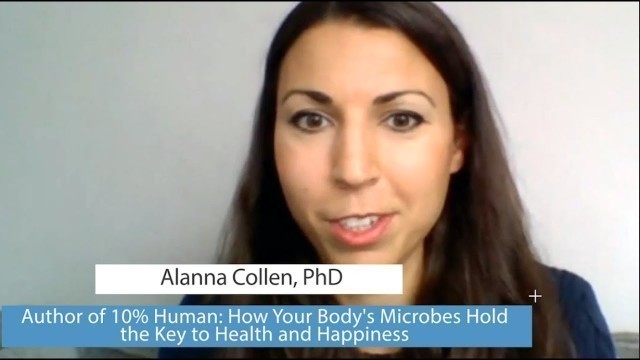

49:09
May 13, 2023
4
4
'Science says eating just one meal per day can improve your health. Learn more at https://highintensityhealth.com/OMAD ----- Alanna Collen is a British science writer with degrees in biology from Imperial College London, and a PhD in evolutionary biology from University College London and the Zoological Society of London. In this episode we discuss the details of her book, 10% Human: How Your Body’s Microbes Hold the Key to Health and Happiness. 12:53 An Evolutionary Reason for Obesity: If obesity is the result of an inbuilt need to eat as much as possible, than, from an evolutionary standpoint, obesity would have positive effects on our health. Dr. Collen is not sure that obesity is an evolutionary process, and considers the possibility that it may be a pathological process. 16:08 The Role of Our Gut Bacteria: Our gut bacteria act as an intermediary between us and our environment. We cannot change our genes, but we can change how they express themselves. That’s epigenetics. We can influence gut bacteria more directly, which affects our epigenetics. Our gut bacteria play a huge role in influencing disease and our overall health. 17:29 How Does Gut Bacteria Influence Our Genes? The human genome is made up of genes and gene segments from other organisms, especially viruses. Gut bacteria’s main contribution to our genes is in controlling our immune system and its reaction to other things. It reaches far beyond allergies and autoimmunity to mental illness and obesity. If our immune system is not calmed by the microbes, inflammation begins. Inflammation has a large role in mental health and obesity. 21:55 Change of Perspective in the Field of Nutrition: For years in nutrition, we have been concerned with what happens in the small intestine. That is where our enzymes are created to break down our foods to enter the bloodstream. We thought of the large intestine as a place where water is absorbed and where stools are formed. Traditionally, we have not been concerned with the biochemical processes that go on in the large intestine. But we now find that what out gut microbes do in the large intestine and elsewhere is very important to nutrition, appetite regulation and the way we store energy. 24:14 Foods That Promote Microbial Diversity: General consensus is that eating fiber in the form of plant based food is best for microbiome diversity. These fibrous foods include peas, onions, leeks, whole grains, leafy vegetables and some fruits. Try to increase plant based foods over animal based foods and you will increase your diversity. 26:46 Akkermansia: Akkermansia is a bacterium, which is naturally present in the human gut. Levels fall with obesity. Lower levels of akkermansia in the gut are linked to thinner mucus lining in the gut and a more permeable gut lining, allowing leakage. The hypothesis is that lipopolysaccharides (LPS), which coats the cells of some bacteria, is getting into the bloodstream, activating the immune system, causing inflammation and changing the whether our adipose tissue/fat cells use energy or stores it. Perhaps supplementing with akkermansia can assist in weight loss. 29:06 Dietary Fat: Often when researchers do animal studies on high fat diets, they use extreme amounts of fat, maybe 60 to 70% fat. What we consider a high fat diet in humans is in the range of 30 to 45%. In one study, rats were fed an extremely high fat diet and they were supplemented with prebiotics/fiber. With the addition of fiber, there was less effect from the fat on the body. The gut lining remained tight, so LPS was less able to get into the bloodstream and the rats were resistant to becoming obese. 32:58 Gut Microbiome and Autism and Autoimmunity: It has been observed that children with autism have more severe gastrointestinal disturbances than neurotypical children. Autistic children also have differences in gut bacteria from neurotypical children. What compounds are being produced from those bacteria, what those compounds do and how they affect the brain, is being researched. 38:11 Gender Differences in Autoimmunity: Once people pass puberty, most autoimmune diseases affect women far more than they affect men. Autoimmunity that strikes before puberty, affects boys more than girls. Autism affects far more boys than girls. There seems to be an effect of hormones on autoimmunity. One reason a woman’s hormones differ from that of a man’s is because there is a need to accept the fetus, rather than reject it as a foreign body. These hormones affect gut microbes and the immune system.'
Tags: autoimmune disease , gut bacteria , leaky gut , autoimmunity , gut microbes
See also:

















comments